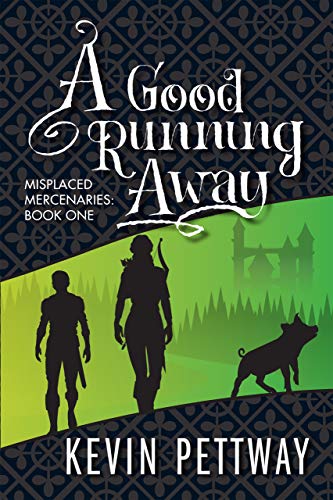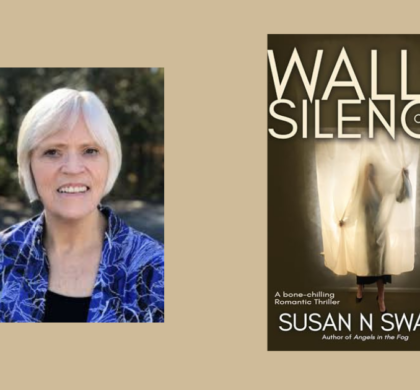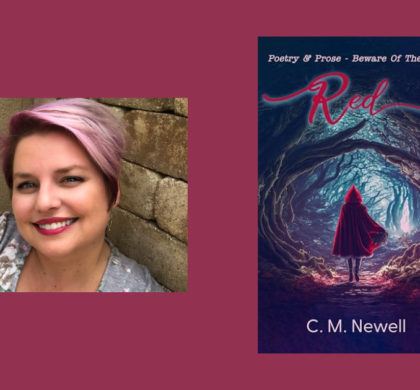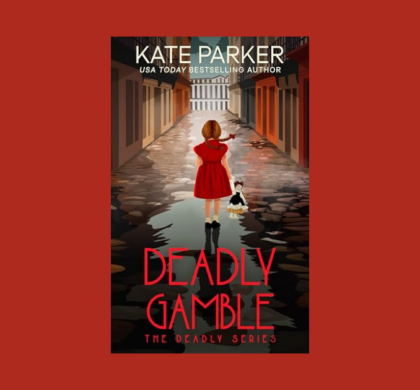Interview with Kevin Pettway, Author of A Good Running Away
21 Jan 2020
What can you tell us about your new release, A Good Running Away?
It’s a story about two friends, Sarah and Keane, mercenaries who are on the run from their old commander because he wants Keane dead. While there are loads of harrowing experiences, magical creatures, and mysterious goings-on, the heart of the story is the friendship between the two main characters. How it gets tested, what happens when it cracks, and how their faith in each other allows them to overcome obstacles they never could have alone.
Also, there is a lot of really funny cussing.
What or who inspired you to become an author?
Tolkien and Zelazny were my favorite authors growing up, and while they were both formative for me, it was really the books I didn’t like that pushed me to write. I wanted to read lighter-toned books that left me feeling happy and glad that I’d spent the time, instead of bummed out that my favorite character died. Again.
A series of classes with Mike Stackpole at Dragon*Con gave me the confidence to write my initial—and all my subsequent—trunk novels, and the writers’ community that has materialized around the Superstars Writers’ Conference in Colorado Springs allowed me a springboard to create the Misplaced Mercenaries books, of which A Good Running Away is the first. It was there that I met my publisher, Cursed Dragon Ship Publishing, whom I love more than air.
What’s on your top 5 list for the best books you’ve ever read?
My first favorite book was Tolkien’s The Hobbit, which represented my introduction into the very idea of fantasy. It was an enormously eye-opening (and fun!) experience for me. I will admit that part of what I loved was the fact that my dad thought it was worthless. He’s a bit misogynist, and hobbits are the most un-sexist people in fantasy. Male or female, they all spend their time barefoot in the kitchen.
Next were The Belgariad, a five-book series by David Eddings. I used to fall asleep reading these and then continue the book in my dreams. The next night I’d have to go back a few pages to reorient myself because the words in my dreams didn’t quite match up anymore with the actual story, and I couldn’t be sure which was which.
The big one was Roger Zelazny’s Chronicles of Amber trilogy. These books set my brain on fire. Deeply mysterious with an accessible – and unreliable – narrator, cosmos-altering magic, and petty family squabbles was both fascinating and relatable. Corwin’s family was a lot like mine. (Feel free to send condolences if you’ve read the books.)
Watchmen changed my world. Moore and Gibbons created a seismic shift away from what comics had been into a whole new realm. Although there had been plenty of stirrings before, this was the first major effort by a big comic publisher to shove funny books into the hands of grown-ups. It was amazing. It was seminal. It had exploding space squid.
The last one on my list is a webcomic called Oglaf. No long-form storytelling here, just funny-as-hell inanity and prurient filth, which I can get behind. For all its dirtiness, this comic is extremely clever with humor that walks up to your face and smacks you in the back of the head out of nowhere. It made me want to draw and and learn how to tell better jokes in my writing. For this reason, I am now strictly a writer.
Say you’re the host of a literary talk show. Who would be your first guest? What would you want to ask?
(The sound of an interview screeching off the road and crashing into a tree.)
You can’t just drop a question like that on me! What’s the name of my show? Is it PBS or cable-access? Podcast? There are WAY too many variables for a compulsive outliner like me to answer this.
Okay, let’s figure it out.
First, eliminate all the above possibilities. I gave up a career here, so it has to be worthwhile. My show is on Oprah’s OWN network, and my first guest is Jesus. Or Keanu Reeves. Either way we’d talk about me for the first fifteen minutes, and then I’d throw them a question about their current projects. Fade to video of kittens pouncing on sleeping people’s faces.
What’s your favorite thing about writing?
Controlling both sides of the argument. That, and not having a boss come and tell me that I’m going to the bathroom too often. Also, dogs in my office. I love that.
Writing creates a very specific kind of chemical release in the brain that leaves me calm and happy for the rest of the day. That’s cool. Not writing makes my eye twitch and gives me headaches and a case of the jitters. That’s not cool.
Whenever I’m at a party now everyone wants to talk to me about being an author. Instant invite to the cool kids’ table. People you never thought would have given you the time of day suddenly want you in their orbit. It’s like being rich, except that you’re also poor.
So, I’d say my favorite thing about writing is not having headaches, jitters, and twitchy eyes.
What is a typical day like for you?
The first thing I’d do if I won the lotto would be to build a castle with room-to-room wifi. It seems obvious now, but back in castle-building days no one realized that solid stone would be so bad for your signal. Everything was hardwired back then, if you can believe that.
Lena (the wife) and I took a trip across country recently, ending up in the mountains of North Carolina. I stayed in the hotel room and wrote while she took sculpting classes from a traveling instructor. Being from Florida, it took several days there to convince me that I might not, at any point, simply fall the 8,000 feet or so back to sea level and die, despite that entire distance being occupied by solid stone.
I’m sorry. What was the question again? Oh, right. I don’t know. I haven’t had a “typical” day yet.
What scene in A Good Running Away was your favorite to write?
That’s tough. In general, I like the talky stuff because it’s more dramatic. But specifically…
I loved anything with Sarah talking. Keane blabs all the time, and Sarah is the action hero, but Sarah’s quiet confidence and softness come out when she’s comfortable and happy, and I dug that a lot. She was an accomplishment.
I also really liked the Eli and Harden scenes. Those two old assholes have a seriously complicated relationship that I could have spent a year exploring. The fact that they are also the villains of the piece introduces golden opportunities for humor that I felt worked particularly well.
But one scene that was my favorite? Well, it isn’t a scene exactly, but it was fun.
From the beginning I knew that Keane was going to be a lively character with a “colorful” vocabulary. But it was important to me that his words transmit more than mere vulgarity. (Not that I don’t love me some vulgarity, but it wasn’t enough all by itself.)
Most of the cursing, therefore, tells you a little bit about the world the characters inhabit, the characters themselves, or more commonly both. Curses needed to be interesting little daubs of paint on the background canvas of the book’s setting. More than that, they needed to be funny, because otherwise, what would be the point?
So, in a separate document, I wrote curse after curse after curse. As creative and filthy as I could. As I wrote, I received comfort and amusement in the thoughts that I might one day make actual money from what I was doing, and by how much my parents would disapprove.
I might have some issues around that.
Do you have a motto, quote or philosophy you live by?
Get comfortable saying “no” to people. Nothing in your life will make you happier than using this one tool to discover what is really important to you and what isn’t.
Never assume you’ve beaten the machine. I was told this a looong time ago by a friend who was teaching me to ride a motorcycle, but it stuck with me and I use it in almost every aspect of my life. The idea is that as soon as you think you’ve learned everything there is to know about something, that’s when it’ll throw you and kick you in the ass. Doing this forces you to acknowledge that there is always more to learn, you can always improve, and that you should never stop examining yourself for your own flaws.
Avoid sugar. It’s just not good for you. Unless you’re cooking for an extreme diabetic who will go into a funny coma at the dinner table. But you still shouldn’t eat it. I’m just saying, I wish someone had told me before I became an extreme diabetic.
Learn to read upside down. People are a lot less careful with their credit card numbers when they think you can’t properly see them. This isn’t really a philosophy or anything, just a bit of helpful advice from me to you.
And finally, don’t be too literal in your interpretation of interview questions. You have no idea what an interviewer might have meant by, “Who is your favorite author?” It could be anything. It probably has to do with pudding and leather straps. Do you really want to get mixed up in that?
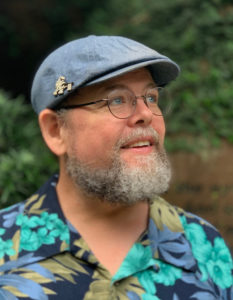
Kevin Pettway is the author of the new book A Good Running Away.
Connect with Kevin
Author Website
Facebook
Buy The Book
Sign up for our email and we’ll send you the best new books in your favorite genres weekly.
